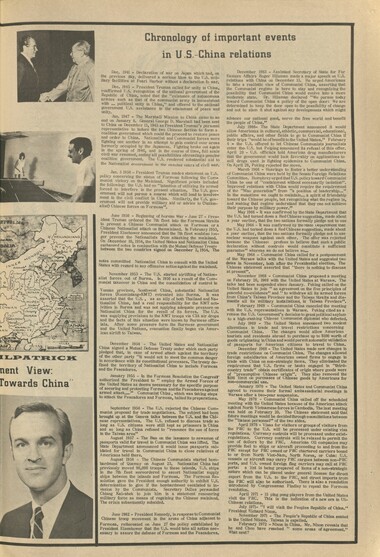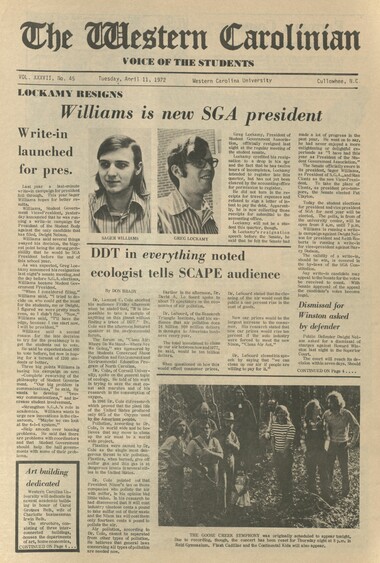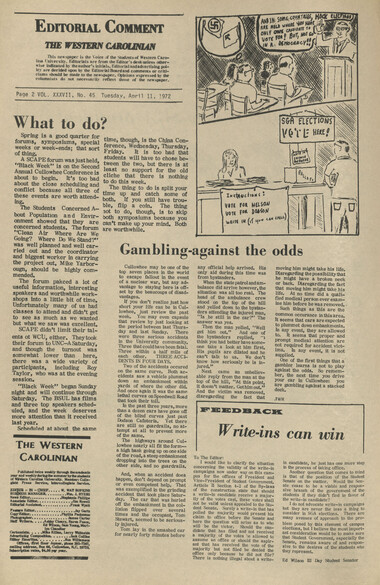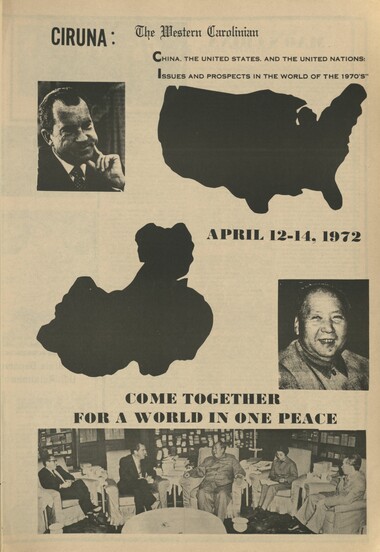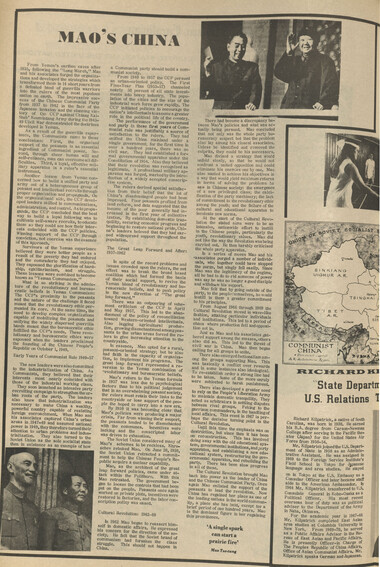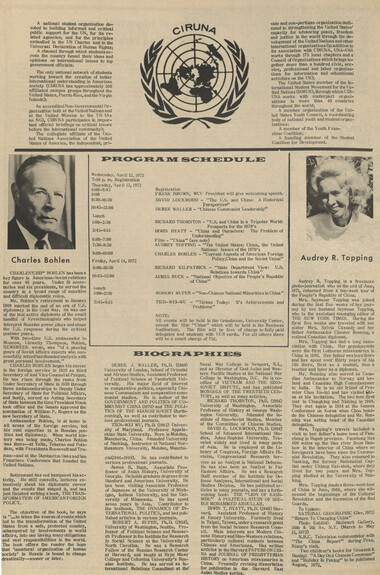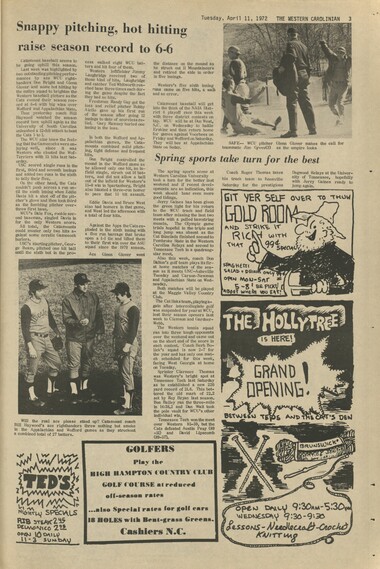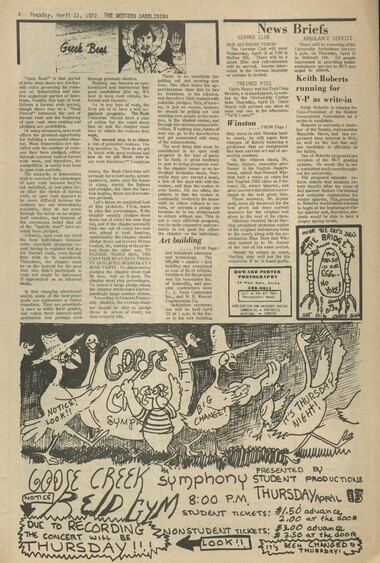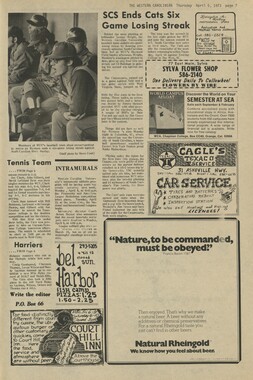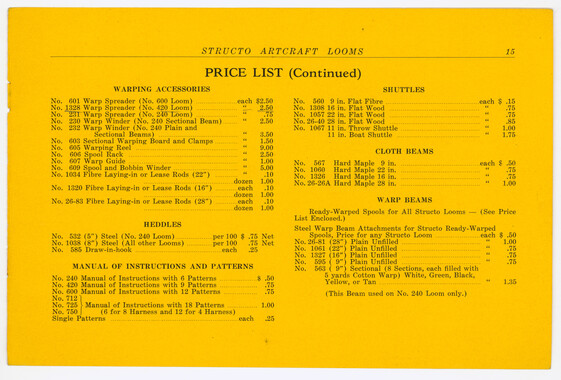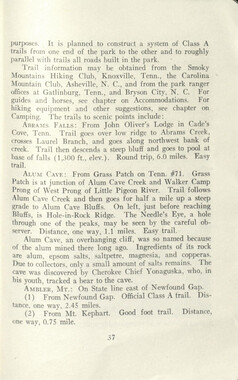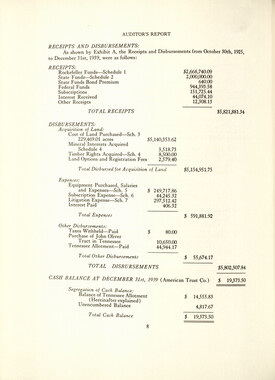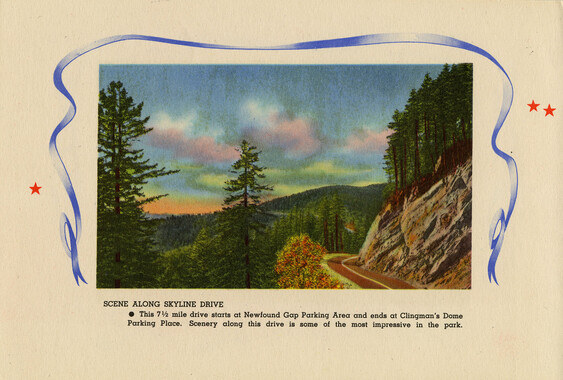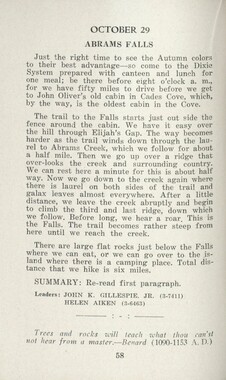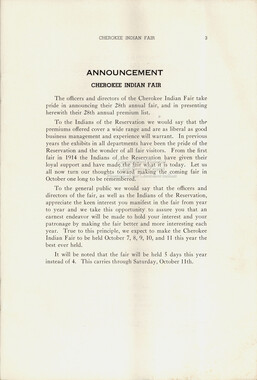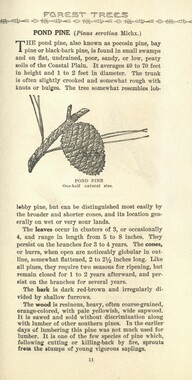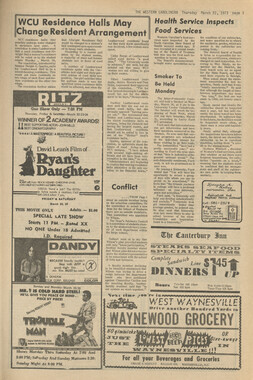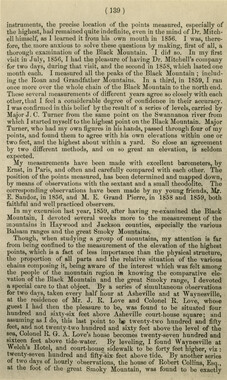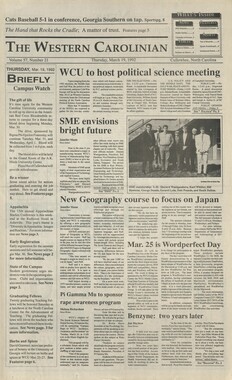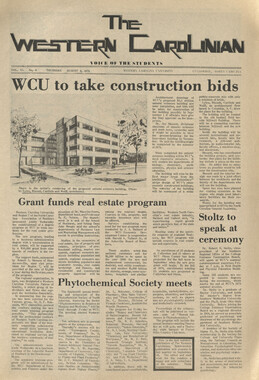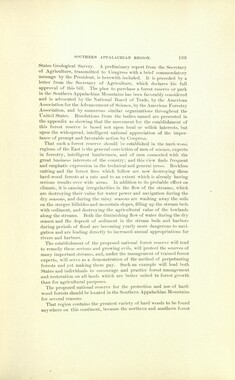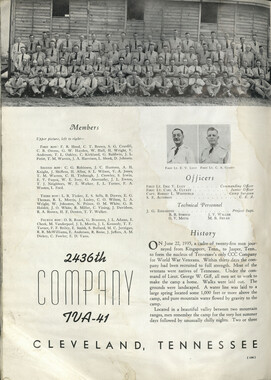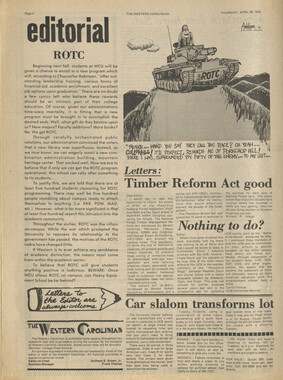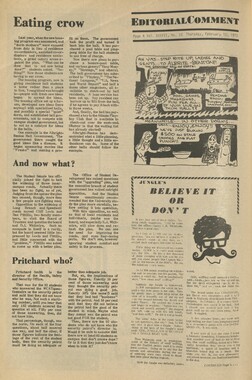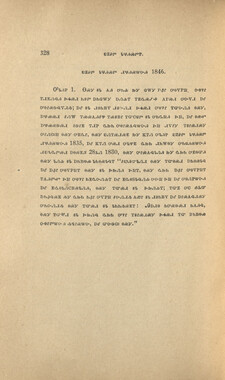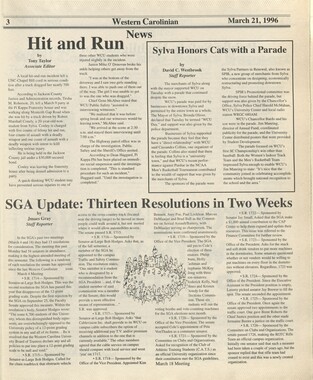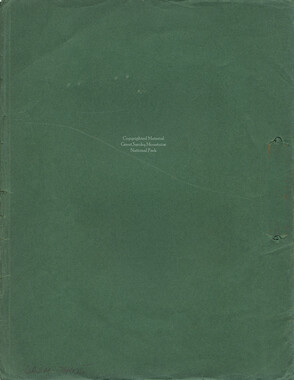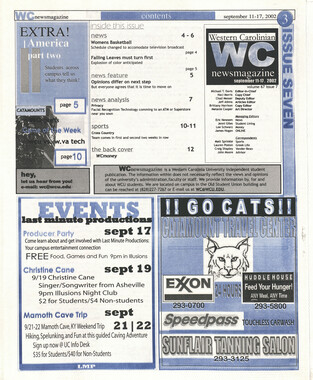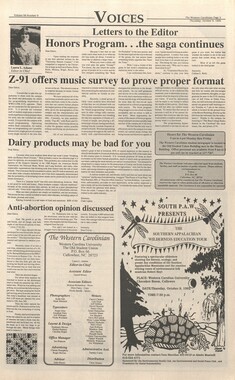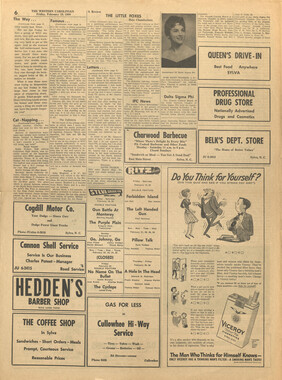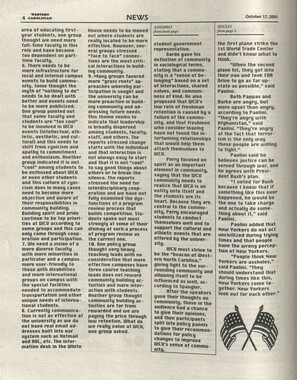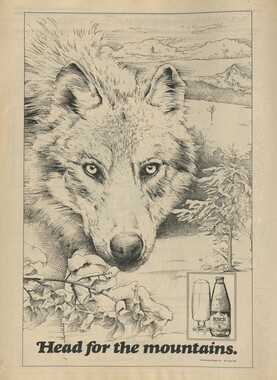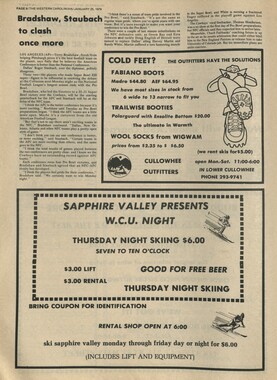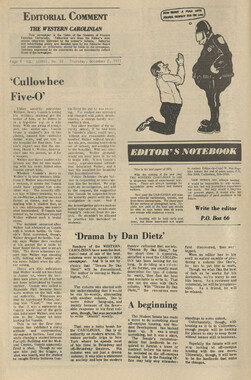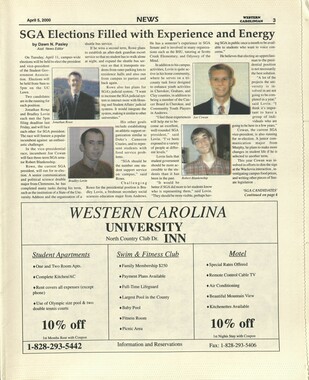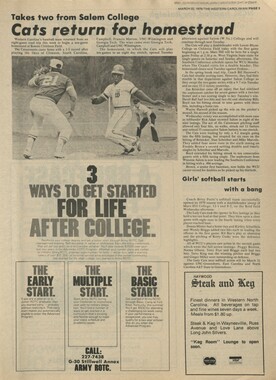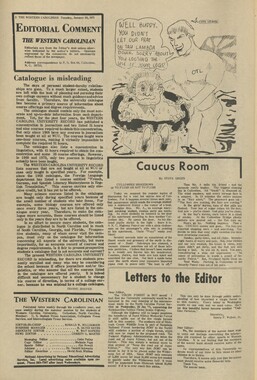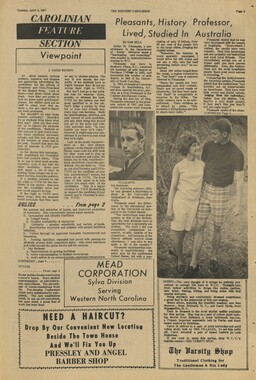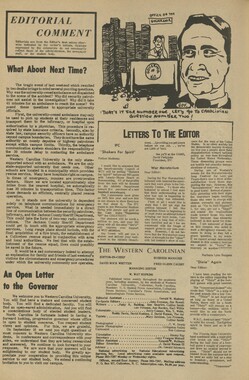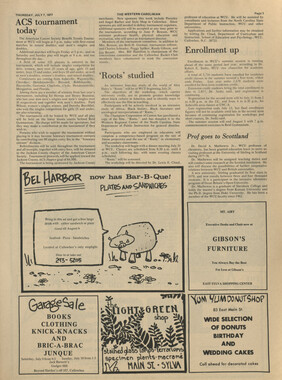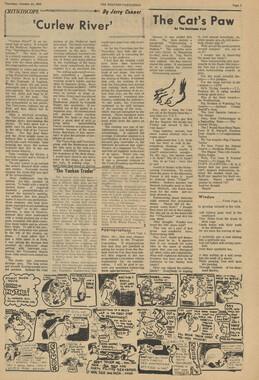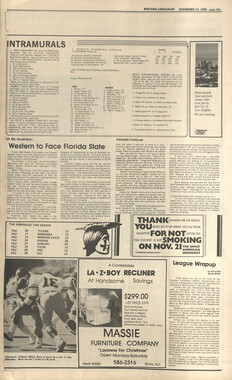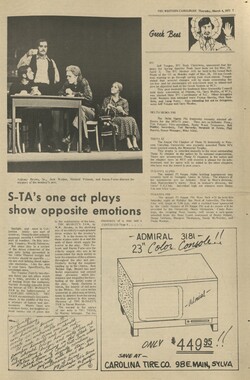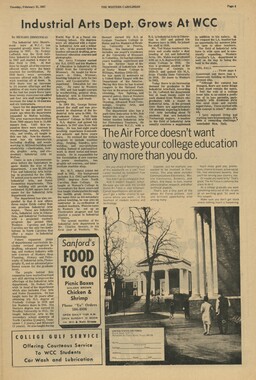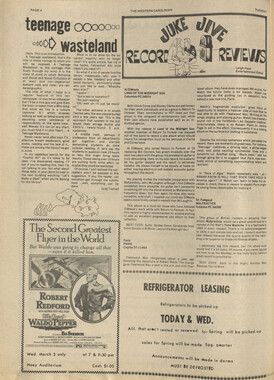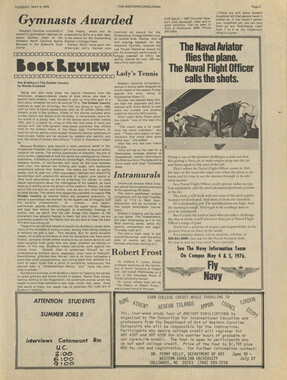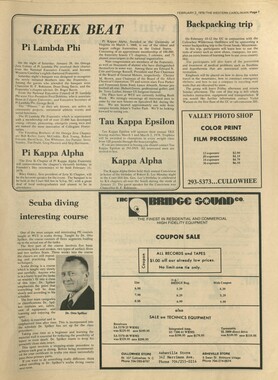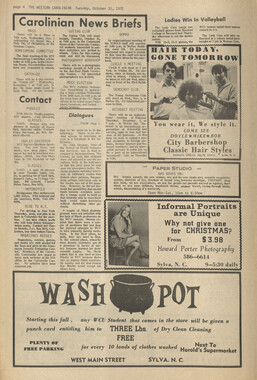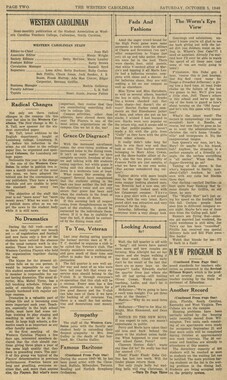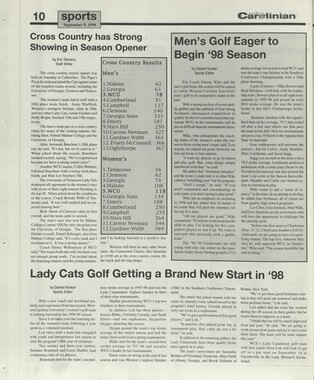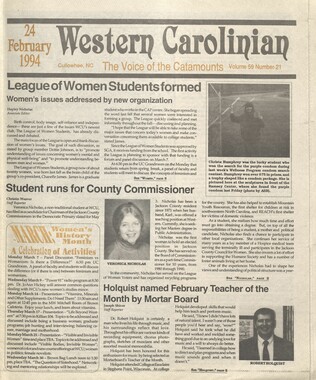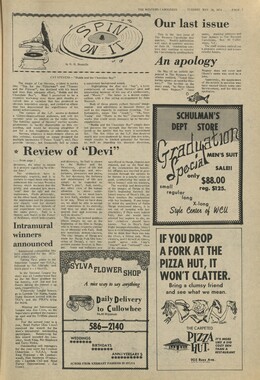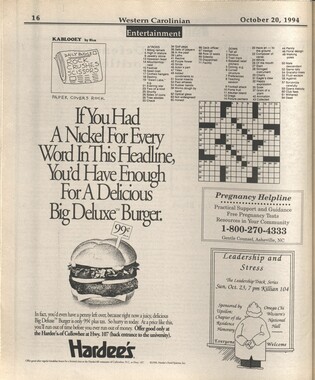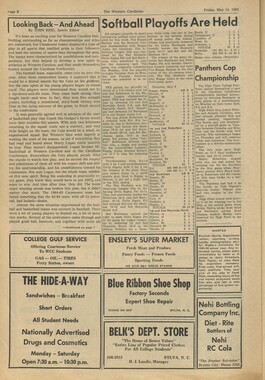Western Carolina University (20)
View all
- Canton Champion Fibre Company (2308)
- Cherokee Traditions (292)
- Civil War in Southern Appalachia (165)
- Craft Revival (1942)
- Great Smoky Mountains - A Park for America (2766)
- Highlights from Western Carolina University (430)
- Horace Kephart (941)
- Journeys Through Jackson (154)
- LGBTQIA+ Archive of Jackson County (85)
- Oral Histories of Western North Carolina (314)
- Picturing Appalachia (6772)
- Stories of Mountain Folk (413)
- Travel Western North Carolina (160)
- Western Carolina University Fine Art Museum Vitreograph Collection (129)
- Western Carolina University Herbarium (92)
- Western Carolina University: Making Memories (708)
- Western Carolina University Publications (2283)
- Western Carolina University Restricted Electronic Theses and Dissertations (146)
- Western North Carolina Regional Maps (71)
- World War II in Southern Appalachia (131)
University of North Carolina Asheville (6)
View all
- Western Carolina College (199)
- Western Carolina Teachers College (239)
- Western Carolina University (1792)
- Allanstand Cottage Industries (0)
- Appalachian National Park Association (0)
- Bennett, Kelly, 1890-1974 (0)
- Berry, Walter (0)
- Brasstown Carvers (0)
- Cain, Doreyl Ammons (0)
- Carver, George Washington, 1864?-1943 (0)
- Cathey, Joseph, 1803-1874 (0)
- Champion Fibre Company (0)
- Champion Paper and Fibre Company (0)
- Cherokee Indian Fair Association (0)
- Cherokee Language Program (0)
- Crittenden, Lorraine (0)
- Crowe, Amanda (0)
- Edmonston, Thomas Benton, 1842-1907 (0)
- Ensley, A. L. (Abraham Lincoln), 1865-1948 (0)
- Fromer, Irving Rhodes, 1913-1994 (0)
- George Butz (BFS 1907) (0)
- Goodrich, Frances Louisa (0)
- Grant, George Alexander, 1891-1964 (0)
- Heard, Marian Gladys (0)
- Kephart, Calvin, 1883-1969 (0)
- Kephart, Horace, 1862-1931 (0)
- Kephart, Laura, 1862-1954 (0)
- Laney, Gideon Thomas, 1889-1976 (0)
- Masa, George, 1881-1933 (0)
- McElhinney, William Julian, 1896-1953 (0)
- Niggli, Josephina, 1910-1983 (0)
- North Carolina Park Commission (0)
- Osborne, Kezia Stradley (0)
- Owens, Samuel Robert, 1918-1995 (0)
- Penland Weavers and Potters (0)
- Rhodes, Judy (0)
- Roberts, Vivienne (0)
- Roth, Albert, 1890-1974 (0)
- Schenck, Carl Alwin, 1868-1955 (0)
- Sherrill's Photography Studio (0)
- Smith, Edward Clark (0)
- Southern Highland Handicraft Guild (0)
- Southern Highlanders, Inc. (0)
- Stalcup, Jesse Bryson (0)
- Stearns, I. K. (0)
- Thompson, James Edward, 1880-1976 (0)
- United States. Indian Arts and Crafts Board (0)
- USFS (0)
- Vance, Zebulon Baird, 1830-1894 (0)
- Weaver, Zebulon, 1872-1948 (0)
- Western Carolina University. Mountain Heritage Center (0)
- Whitman, Walt, 1819-1892 (0)
- Wilburn, Hiram Coleman, 1880-1967 (0)
- Williams, Isadora (0)
- 1920s (57)
- 1930s (69)
- 1940s (114)
- 1950s (66)
- 1960s (314)
- 1970s (599)
- 1980s (406)
- 1990s (379)
- 2000s (195)
- 2010s (83)
- 1600s (0)
- 1700s (0)
- 1800s (0)
- 1810s (0)
- 1820s (0)
- 1830s (0)
- 1840s (0)
- 1850s (0)
- 1860s (0)
- 1870s (0)
- 1880s (0)
- 1890s (0)
- 1900s (0)
- 1910s (0)
- 2020s (0)
- Jackson County (N.C.) (2282)
- Appalachian Region, Southern (0)
- Asheville (N.C.) (0)
- Avery County (N.C.) (0)
- Blount County (Tenn.) (0)
- Buncombe County (N.C.) (0)
- Cherokee County (N.C.) (0)
- Clay County (N.C.) (0)
- Graham County (N.C.) (0)
- Great Smoky Mountains National Park (N.C. and Tenn.) (0)
- Haywood County (N.C.) (0)
- Henderson County (N.C.) (0)
- Knox County (Tenn.) (0)
- Knoxville (Tenn.) (0)
- Lake Santeetlah (N.C.) (0)
- Macon County (N.C.) (0)
- Madison County (N.C.) (0)
- McDowell County (N.C.) (0)
- Mitchell County (N.C.) (0)
- Polk County (N.C.) (0)
- Qualla Boundary (0)
- Rutherford County (N.C.) (0)
- Swain County (N.C.) (0)
- Transylvania County (N.C.) (0)
- Watauga County (N.C.) (0)
- Waynesville (N.C.) (0)
- Yancey County (N.C.) (0)
- Newsletters (510)
- Publications (documents) (1773)
- Aerial Photographs (0)
- Aerial Views (0)
- Albums (books) (0)
- Articles (0)
- Artifacts (object Genre) (0)
- Bibliographies (0)
- Biography (general Genre) (0)
- Cards (information Artifacts) (0)
- Clippings (information Artifacts) (0)
- Crafts (art Genres) (0)
- Depictions (visual Works) (0)
- Design Drawings (0)
- Drawings (visual Works) (0)
- Envelopes (0)
- Facsimiles (reproductions) (0)
- Fiction (general Genre) (0)
- Financial Records (0)
- Fliers (printed Matter) (0)
- Glass Plate Negatives (0)
- Guidebooks (0)
- Internegatives (0)
- Interviews (0)
- Land Surveys (0)
- Letters (correspondence) (0)
- Manuscripts (documents) (0)
- Maps (documents) (0)
- Memorandums (0)
- Minutes (administrative Records) (0)
- Negatives (photographs) (0)
- Newspapers (0)
- Occupation Currency (0)
- Paintings (visual Works) (0)
- Pen And Ink Drawings (0)
- Periodicals (0)
- Personal Narratives (0)
- Photographs (0)
- Plans (maps) (0)
- Poetry (0)
- Portraits (0)
- Postcards (0)
- Programs (documents) (0)
- Questionnaires (0)
- Scrapbooks (0)
- Sheet Music (0)
- Slides (photographs) (0)
- Songs (musical Compositions) (0)
- Sound Recordings (0)
- Specimens (0)
- Speeches (documents) (0)
- Text Messages (0)
- Tintypes (photographs) (0)
- Transcripts (0)
- Video Recordings (physical Artifacts) (0)
- Vitreographs (0)
- The Reporter, Western Carolina University (510)
- WCU Students Newspapers Collection (1744)
- A.L. Ensley Collection (0)
- Appalachian Industrial School Records (0)
- Appalachian National Park Association Records (0)
- Axley-Meroney Collection (0)
- Bayard Wootten Photograph Collection (0)
- Bethel Rural Community Organization Collection (0)
- Blumer Collection (0)
- C.W. Slagle Collection (0)
- Canton Area Historical Museum (0)
- Carlos C. Campbell Collection (0)
- Cataloochee History Project (0)
- Cherokee Studies Collection (0)
- Daisy Dame Photograph Album (0)
- Daniel Boone VI Collection (0)
- Doris Ulmann Photograph Collection (0)
- Elizabeth H. Lasley Collection (0)
- Elizabeth Woolworth Szold Fleharty Collection (0)
- Frank Fry Collection (0)
- George Masa Collection (0)
- Gideon Laney Collection (0)
- Hazel Scarborough Collection (0)
- Hiram C. Wilburn Papers (0)
- Historic Photographs Collection (0)
- Horace Kephart Collection (0)
- Humbard Collection (0)
- Hunter and Weaver Families Collection (0)
- I. D. Blumenthal Collection (0)
- Isadora Williams Collection (0)
- Jesse Bryson Stalcup Collection (0)
- Jim Thompson Collection (0)
- John B. Battle Collection (0)
- John C. Campbell Folk School Records (0)
- John Parris Collection (0)
- Judaculla Rock project (0)
- Kelly Bennett Collection (0)
- Love Family Papers (0)
- Major Wiley Parris Civil War Letters (0)
- Map Collection (0)
- McFee-Misemer Civil War Letters (0)
- Mountain Heritage Center Collection (0)
- Norburn - Robertson - Thomson Families Collection (0)
- Pauline Hood Collection (0)
- Pre-Guild Collection (0)
- Qualla Arts and Crafts Mutual Collection (0)
- R.A. Romanes Collection (0)
- Rosser H. Taylor Collection (0)
- Samuel Robert Owens Collection (0)
- Sara Madison Collection (0)
- Sherrill Studio Photo Collection (0)
- Smoky Mountains Hiking Club Collection (0)
- Stories of Mountain Folk - Radio Programs (0)
- Venoy and Elizabeth Reed Collection (0)
- WCU Gender and Sexuality Oral History Project (0)
- WCU Mountain Heritage Center Oral Histories (0)
- WCU Oral History Collection - Mountain People, Mountain Lives (0)
- Western North Carolina Tomorrow Black Oral History Project (0)
- William Williams Stringfield Collection (0)
- Zebulon Weaver Collection (0)
- College student newspapers and periodicals (1769)
- African Americans (0)
- Appalachian Trail (0)
- Artisans (0)
- Cherokee art (0)
- Cherokee artists -- North Carolina (0)
- Cherokee language (0)
- Cherokee pottery (0)
- Cherokee women (0)
- Church buildings (0)
- Civilian Conservation Corps (U.S.) (0)
- Dams (0)
- Dance (0)
- Education (0)
- Floods (0)
- Folk music (0)
- Forced removal, 1813-1903 (0)
- Forest conservation (0)
- Forests and forestry (0)
- Gender nonconformity (0)
- Great Smoky Mountains National Park (N.C. and Tenn.) (0)
- Hunting (0)
- Landscape photography (0)
- Logging (0)
- Maps (0)
- Mines and mineral resources (0)
- North Carolina -- Maps (0)
- Paper industry (0)
- Postcards (0)
- Pottery (0)
- Railroad trains (0)
- Rural electrification -- North Carolina, Western (0)
- School integration -- Southern States (0)
- Segregation -- North Carolina, Western (0)
- Slavery (0)
- Sports (0)
- Storytelling (0)
- Waterfalls -- Great Smoky Mountains (N.C. and Tenn.) (0)
- Weaving -- Appalachian Region, Southern (0)
- Wood-carving -- Appalachian Region, Southern (0)
- World War, 1939-1945 (0)
- Text (2283)
- MovingImage (0)
- Sound (0)
- StillImage (0)
Western Carolinian Volume 37 Number 45
Item
Item’s are ‘child’ level descriptions to ‘parent’ objects, (e.g. one page of a whole book).
-
-
Chronology of important events in US-China relations nent View: rowards China Dec. 1941 - Declaration of war on Japan which had, on the previous day, delivered a serious blow to the UJS. military facilities at Pearl Harbor without a declaration fo war. Dec. 1945 - President Truman called for unity in China, reaffirmed IS. recognition of the national government of the Republic of China, noted that the "existence of autonomous armies such as that of the communist army is inconsistent with ... political unity in China," and offered to the national government UJS. assistance in the attainment of peace and unity. Jan, 1947 - The Marshall Mission to China came to an end on January 8. General George D. Marshall had been sent to China on December 15, 1945 as President Truman's personal representative to induce the two Chinese faction to form a coalition government which could the proceed to restore peace and order to China, Nationalist and Communist forces were fighting one another in an attempt to gain control over areas formerly occupied by the Japanese. Fighting broke out again in the spring of 1946, and in the course of time, full scale civil war resumed, ending all possibilities ofcreatinga genuine coalition government. The UJS. rendered substantial aid to the Nationalist Government in the pnsuine vears of civil war. Jan, 5 1950 ~ President Truman made a statement on UJS. policy concerning the status of Formosa following the Communist victory on the Mainland, Significant points included the following: the UJ5. had no "intention of utilizing its armed forced to interfere in the present situation. The U.S. government will not pursue a course which will lend to involvement in the civil conflict in China, Similarly, the U.S. government will not provide military aid or advice to (Nationalist) Chinese forces on Formosa". June 1950 - Beginning of Korean War - June 27 - President Truman ordered the 7th fleet into the Formosa Straits to prevent a Chinese Communist attack on Formosa or a Chinese Nationalist attack on themainland. In February 1953, President Eisehower announced that the 7th fleet would no longer prevent the Nationalists from attacking the mainland. On December 10, 1954, the United States and Nationalist China exchanged notes in coniunction with the Mutual Defense Treatv between the two countries signed on December 2, 1954. The notes committed Nationalist China to consult with the United States with regard to any offensive action against the mainland. November 1953 - The U.S. started airlifting of Nationalist forces out of Burma. In 1950 as a result of the Communist takeover in China and the consolidation of control in Yunnan province, Southwest China, substantial Nationalist forces (Kuomintang-KMT) retreated into Burma. It was asserted that the U.S. , as an ally of both Thailand and Nationalist China, had a real responsibility for the KMT activities in Burma and was not applying adequate pressure on Nationalist China for the recall of its forces. The U.S. was supplying provisions to the KMT troops via CIA air drops and the facts of this situation were known by Burmese officials. After some pressure form the Burmese government and the United Nations, evacuation finally began via American airlift to Taiwan. December 1954 - The United States and Nationalist China signed a Mutual Defense Treaty under which each party pledged that, in case of armed attack against the territory of the other party "it would act to meet the common danger in accordance with its constitutional processes. The treaty defined the territory of Nationalist China to include Formosa and the Pescadores. January 1955 - In the Formosa Resolution the CongresT authorized the President to " employ the Armed Forces of the United States as deems necessary for the specific purpose of securing and protecting Formosa and the Pescadores against armed attack...." Communist China, which was taking steps to attack the Pescadores and Formosa, halted its preparations. September 1956 - The U.S. rejected the Chinese Communist proposal for trade negotiations. The subject had been brought up at the Geneva talks between the U.S. and the Chinese representatives. The U.S. refused to discuss trade so long as U.S. citizens were still kept as prisoners in China and so long as China refused to "renounce the use of force in the Taiwan area" August 1957 - The Ban on the issuance to newsmen of passports valid for travel in Communist China was lifted. The State Department ammounced it would issue passports validated for travel in Communist China to close relatives of Americans held there. August 1958 - The Chinese Communists started bombardment of Quemoy on August 23. Nationalist China had previously moved 90,000 troops to these islands. U.S. ships in the 7th fleet wereordered to escort Nationalist supply ships between the islands and Formosa. The Formosa Resolution gave the President enough authority to exhibit U.S. determination to give if the bombardment escalated to invasion by the Communists. Secretary Dulles persuaded Chiang Kai-shek to join him in a statement renouncing military force as means of regaining the Chinese mainland. The crisis subsequently subsided. June 1962 - President Kennedy, in response to Communist Chinese troop movement in the areas of China adjacent to Formosa, reitereated on June 27 the policy established by President Eisenhower that the U.S. would take all action necessary to assure the defense of Formosa and the Pescadores. December 1963 - Assistant Secretary of State for Far Eastern Affairs Roger Hilsman made a major speech on I relations with China on December 13. He urged Americans to take a realistic view of Communist China, asserting that the Communist regime is here to stay and recognizing the possibility that Communist China would evolve into a more moderate state. Dr. Hilsman declared "We pursue today toward Communist China a policy of the open door: We are determined to keep the door open to the possibility of change and not to slam it shut against any developments which might advance our national good, serve the free world and benefit the people of China." July 1966- The State Department announced it would allow Americans in cultural, athletic, commercial, educational, public affairs, and other fields to go to Communist China if their trips "would be of benefit to the United States." February 4 - the U.S. offered to let Chinese Communists journalists enter the. UJS. but Peiping announced its refusal of this offer. April 20 - CJi, officials told American drug manufacturers that the government would look favo-ably on applications to sell drugs used in fighting epidemics to Communist China. On April 29, Peking rejected the move. March 1966 - Hearings to foster a better understanding of Communist China were held by the Senate Foreign Relations Committee. Humphrey urged that U.S. policy toward Communist China be one of "containment without necessarily isolation", Improved relations with China would require the requirement of the "Mao generation" from "a position of leadership,.." In the meantime we ought to maintain... a spirit of friendship toward the Chinese people, but recognizing what the regime is, and making that regime understand that they can not achieve their purpose by military power." May 1966 - It was confirmed by the State Department that the U.S. had turned down a Red Chinese suggestion, made about a year earlier, that the two nations formally pledge not to use May 1966 - It was confirmed by the s>tate uepanment mat the U,S, had turned down a Red Chinese suggestion, made about a year earlier, that the two nations formally pledge not to use nuclear weapons against each other. The offer was rejected because the Chinese: profess to believe that such a public declaration without controls would constitute a sufficient guarantee" whereas we do not believe so... May 1968 - Communist China called for a postponement of the Warsaw talks with the United States and suggested two dates in November, both after the Presidential election. The Chinese statement asserted that "there is nothing to discuss at present". November 1968 - Communist China proposed a meeting on February 20, 1969 with the United States at Warsaw. The talks had been suspended since January. Peking called on the United States to join " an agreement on the five principles of peaceful co-existence" and " to withdraw all its armed forces from China's Taiwan Province and the Taiwan Straits and dismantle all its military installations, in Taiwan Province". February 1969 - Communist China canceled the meeting with the U.S. representatives in Warsaw. Peking cited as a reason the U.S. Government's decision to grant political asylum to a high-ranking Chinese Communist diplomat who defected. July 1969 - The United States announced two modest alterations in trade and travel restrictions concerning Communist China. The changes would allow American tourists and residents abroad to purchase up to $100 worth of goods originating in China and would permit automatic validation of passports for American citizens to travel to China. December 1969 - The United States made new changes in trade restrictions on Communist China. The changes allowed foreign subsidiaries of American owned firms to engage in trade with China on non-strategic items. They eliminated the requirement that U.S. firms or banks engaged in "third- country trade" obtain certificates of origin where goods were of "presumptive Chinese origin". They also removed the $100 limit on purcnases of Chinese goods by Americans for .non-commercial use. January 1970 - The United States and Communist China agreed to resume their formal ambassadorial meetings in Warsaw after a two-year suspension. May 1970 - Communist China called off the scheduled meeting with the United States because of the American attack against North Vietnamese forces in Cambodia. The last meeting was held on February 20. The Chinese statement said that future meetings would be decided through consultations between the "liaison personnel" of the two sides. April 1970 - Visas for visitors or groups of visitors from the PRC to the U.S. will be processed under existing visa regulations. Currency controls will be processed under exist- regulations. Currency controls will be relaxed to permit the use of dollors by the PRC. American Oil companies may provide fuel to ships or aircraft proceeding to and from the PRC except for PRC owned or PRC chartered carriers bound to or from North Viet-Nam, North Korea, or Cuba: U.S, vessels or aircraft may carry PRC cargoes between non-PRC ports, and U.S. owned foreign flag carriers may call at PRC ports: a list is being prepared of items of a non-strategic nature which can be placed under general license for direct export from the U.S. to the PRC, and direct imports trom the PRC will also be authorized. There is also a resolution introduced by Congressman Findley to repeal the Formosa resolution. April 1971 - 15 ping pong players from the United States visit the PRC. This is the indication of a new era in US- Chinese relations. July 1971- "I will visit the Peoples Republic of China." President Richard Nixon. November 1971 - The People's Republic of China seated in the United Ntions. Taiwan is expelled. February 1972 - Nixon in China. Mr. Nixon reveals that he and Chou have reached " some areas of agreement." What next?
Object
Object’s are ‘parent’ level descriptions to ‘children’ items, (e.g. a book with pages).
-
The Western Carolinian is Western Carolina University's student-run newspaper. The paper was published as the Cullowhee Yodel from 1924 to 1931 before changing its name to The Western Carolinian in 1933.
-
